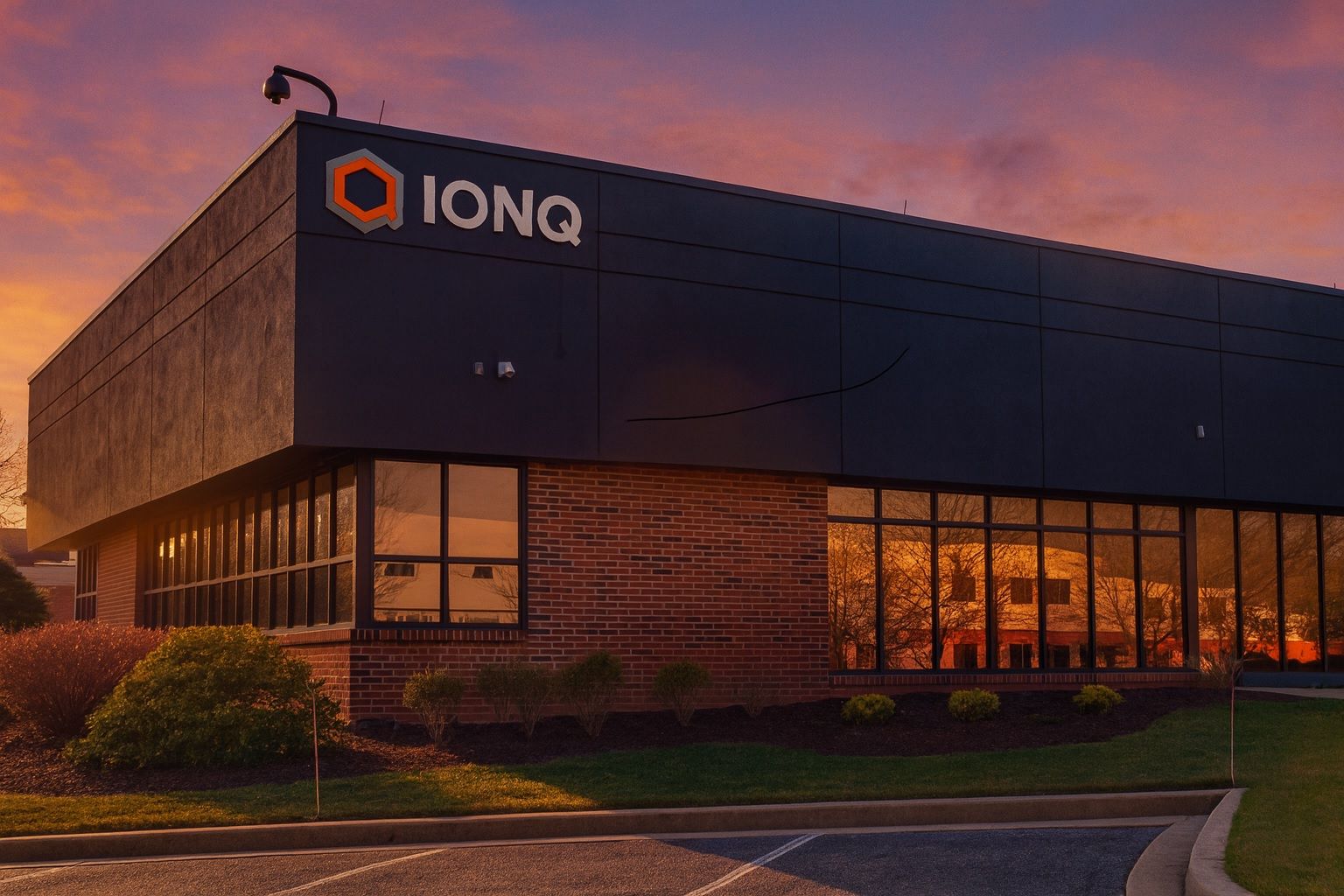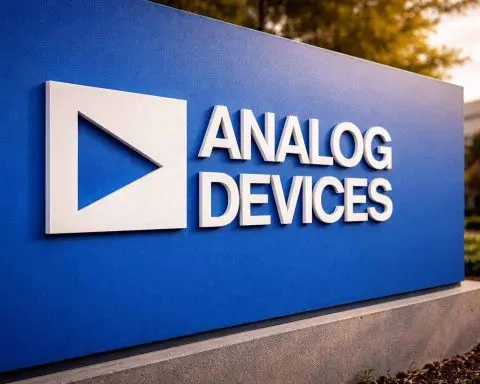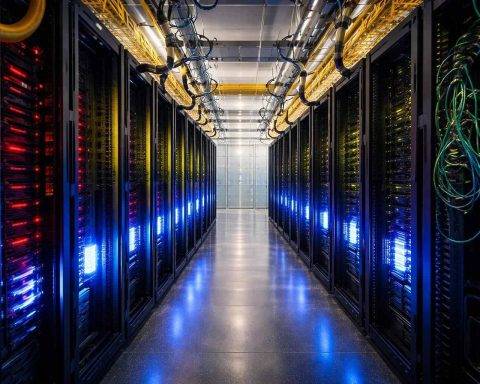- Stock price (Oct. 22, 2025): ~$55.45 (closed Oct. 22)finviz.com, after peaking near $82 in mid-October; roughly +700% YTDts2.tech.
- Major breakthroughs: Achieved a world-record 99.99% two-qubit gate fidelitybenzinga.com, a critical step toward fault-tolerant quantum computers.
- Funding & partnerships: Raised $2.0 billion via a 16.5M-share offering at $93cryptorank.iots2.tech; co-founded Italy’s “Q-Alliance” quantum hubinvestors.ionq.com; agreed to acquire UK firm Oxford Ionics for $1.08Breuters.com.
- Analyst outlook: Price targets now range from about $80–$100 (bulls) down to ~$32 (bears)ts2.tech, with the consensus 1-year forecast in the mid-$50s.
- Tech leadership: IonQ’s trapped-ion architecture offers higher coherence and qubit connectivitystartupnews.fyi; partners and customers include Amazon Web Services, Microsoft Azure, Google Cloud, AstraZeneca and NVIDIAinvestors.ionq.com.
- Industry context: Quantum computing market is projected to be enormous (BCG sees >$500 billion by 2040ts2.tech); governments and big tech (e.g. U.S., EU) are pouring funding and equity into quantum R&Dinvestors.ionq.comstartupnews.fyi.
Stock Performance & Recent Moves
IonQ’s stock has been extremely volatile in recent days. After skyrocketing to a 52-week high near $82 in mid-Octoberts2.tech, shares pulled back to the mid-$60s and have since settled around $55–$60. On October 22, IONQ closed at $55.45finviz.com, about 23% below its recent peak. Even so, the stock remains up roughly 700% year-to-datets2.tech, making it one of the biggest gainers of 2025. Trading volumes are heavy (tens of millions of shares daily) and daily swings of 5–10% are commonts2.techfinviz.com. This roller-coaster pattern reflects euphoria and caution: IonQ is now valued at nearly $20 billion (around 200× forward sales)ts2.tech, pricing in highly aggressive growth expectations. One commentator notes this rally “has been driven more by investor optimism, hype, and government support than fundamentals”ts2.tech. Such rich valuation means even small setbacks (market pullbacks or profit-taking after the $2B offering) can cause sharp drops.
Breakthroughs & Corporate News
October brought a flurry of catalysts. The biggest technical news was IonQ’s announcement of a quantum chemistry milestone: its latest trapped-ion system simulated complex chemical reactions with a global auto partner, reportedly solving atomic-level forces “more accurately than classical methods”ts2.tech. CEO Niccolo de Masi hailed this achievement as “a clear path for quantum computing to enhance chemical simulations that are foundational to decarbonization technologies”ts2.tech. At the same time, IonQ disclosed it had achieved 99.99% two-qubit gate fidelity – a world-record performance for two-qubit operationsbenzinga.com. This “four-nines” fidelity milestone far surpasses the prior 99.97% record and, as de Masi put it, is “a watershed moment” in reaching fault-tolerant quantum computing, bringing such systems “years closer to mass market adoption”benzinga.com. Dr. Chris Ballance (co-founder of Oxford Ionics, now part of IonQ) added that this shows “world-record quantum computing performance is now possible on mass-manufacturable technology”benzinga.com.
On the business side, IonQ has been aggressively expanding. On Oct. 10, it raised $2.0 billion in a single share offering (16.5 million new shares at $93 each)cryptorank.iots2.tech – one of the largest equity raises ever for a quantum tech company. The deal (backed by hedge fund Heights Capital) priced at a 20% premium to the pre-offer market price, signaling strong institutional confidence. De Masi called it “the largest common-stock single-institutional investment in the history of the quantum industry” and said the funds would “facilitate our global growth and accelerate our quantum commercialization worldwide”ts2.tech. The news did briefly spook traders (shares dipped on dilution concerns) but overall it provides IonQ a huge war chest to fuel R&D and marketing.
IonQ also announced an ambitious global partnership: it co-founded “Q-Alliance”, a public-private quantum hub in Lombardy, Italyinvestors.ionq.comts2.tech. In a press release, de Masi said Italy has an opportunity for a “Quantum Renaissance” and that IonQ intends to “accelerate every segment of Italy’s major industries” (from defense to healthcare) through this collaborationinvestors.ionq.com. This initiative aligns with Italy’s national quantum strategy and extends IonQ’s footprint in Europe.
Acquisitions have been another growth driver. In early October IonQ closed its purchase of Vector Atomic (a startup specializing in atomic-clock based precision sensors)ts2.tech. Earlier in 2025 it also acquired UK-based Oxford Ionics (for $1.08Breuters.com) and optics firms LightSmyth/Lightsynq and Qomplx/Capella Spacets2.tech, bolstering its hardware and networking capabilities. IonQ’s CEO and team continue to grow; it was recently named one of Fortune’s 2025 “Future 50” companies (the only quantum tech firm in the Top 10)ts2.tech. Notably, even Big Tech is taking notice: Amazon disclosed about a $36.7 million stake in IonQ this yearts2.tech, effectively giving one of the world’s largest cloud providers a vote of confidence in IonQ’s prospects. (IonQ machines are already offered through Amazon Web Services, Microsoft Azure, and Google Cloudinvestors.ionq.com, and companies like AstraZeneca and NVIDIA are early customers.)
Analyst and Expert Perspectives
Market reactions are mixed. Many bullish analysts have raised their price targets amid IonQ’s momentum. For example, B. Riley recently lifted its 12-month target from $75 to $100ts2.tech, and Needham upped its target to $80ts2.tech. Rosenblatt, Benchmark and Cantor Fitzgerald also cover IonQ with Buy/Overweight ratings and targets mostly in the $60–$75 rangets2.tech. The bullish thesis centers on IonQ’s technology leadership and aggressive roadmap (e.g. plans for 2 million qubits by 2030investors.ionq.comts2.tech). Optimists note that IonQ’s trapped-ion processors already hold algorithmic performance records (e.g. best #AQ64 benchmark) and that its systems run real workloads for blue-chip clients. Mark Li of Quantum Insights Research is optimistic: “IonQ remains one of the most promising pure-play quantum computing companies,” he said, praising its higher coherence times and reliable qubit connectivitystartupnews.fyi. Similarly, University of Toronto’s Dr. Lila Thompson predicts we may be closer to commercial quantum applications than many realize – “IonQ’s approach may lead to the first systems capable of outperforming classical supercomputers in specific domains,” she saidstartupnews.fyi. These technologists foresee IonQ converting breakthroughs into real products and cloud services over the next few years.
On the other hand, skeptical voices warn the stock may have outpaced reality. Investment research firm Weiss Ratings recently gave IONQ a “Sell (D–)” grade, citing “still-tiny” revenues and large lossests2.tech. Morgan Stanley’s analyst Joseph Moore remains bearish: he maintains an Underweight rating with a $32 target, arguing IonQ’s ~$20 billion market cap is hard to justify when projected 2024 revenue was only about $40–50 millionts2.tech. In his view the share offering may signal peak optimism – it’s one thing when enthusiastic retail buyers drive gains, and another when deep-pocketed investors pay premium prices in the offering ts2.tech. Even some tech bulls advise caution; Motley Fool recently reminded readers that “history tells us hype often overshoots reality”ts2.tech. The broad consensus price target (in the high-$50s) sits well below current levelsts2.tech, suggesting many on Wall Street see IONQ as fairly valued or overvalued after its giant run-up. In short, while long-term potential excites analysts, the short-term outlook is uncertain – the stock could continue to gyrate on each new technical update or profit-taking move.
Market Outlook & Sentiment
Despite the split on targets, sentiment is intensely bullish on the quantum computing sector as a whole. Over the past year, funds have poured into quantum startups and established players alike, fueled by hype and by federal initiatives. The Wall Street Journal recently reported that the U.S. government is considering taking equity stakes in leading quantum firms as part of a tech funding pushfinviz.com. Major corporations (IBM, Google, Microsoft, Intel) have opened quantum labs and partnerships, and some analysts predict the quantum market could be worth tens or even hundreds of billions over the coming decades. For example, industry studies forecast a quantum computing total addressable market north of $500 billion by 2040ts2.tech, with near-term markets (e.g. quantum-as-a-service) reaching $25–30 billion by 2032startupnews.fyi. Bloomberg Intelligence cautions that the next 2–3 years could be “make or break” for young quantum companies as they transition from R&D to commercial productsstartupnews.fyi.
In the short term, IonQ will report Q3 results on Nov. 5 (after market close)finviz.com, which many investors will view as a test of progress. Consensus forecasts expect 2025 revenue to roughly double year-on-year, but still remain small – the company lost money in recent quarters. Market sentiment remains mixed: retail traders (some active on social media forums) are enthusiastic about IonQ’s narrative and recent newsflow, while institutional investors weigh the lofty valuation and execution risks. A broader risk is that if quantum hardware fails to deliver real-world profits soon, this 2025 “quantum euphoria” might cool sharply.
Quantum Industry Context
IonQ is a pure-play quantum computing stock – unlike tech giants that dabble in quantum, it focuses entirely on building quantum hardware and software. Its core technology (trapped-ion qubits) is considered by many experts to be a promising route, offering very long coherence times and native qubit connectivitystartupnews.fyi. Key competitors include Rigetti Computing (NASDAQ: RGTI, a Superconducting qubit startup) and D-Wave Quantum (QBTS, an annealing-based system maker). Each approach has fans and detractors. For example, Mark Li notes IonQ’s trapped-ion machines already outshine Rigetti’s on stability, while D-Wave continues to gain commercial traction in specialized optimization tasks.
Big Tech players are also in the quantum race: IBM and Google both have prototype quantum devices, and Microsoft offers a quantum cloud service with partner Honeywell (Quantinuum). These corporations could either partner with or compete against IonQ in offering quantum solutions. IonQ’s strategy has been to be a hardware vendor and cloud provider – it supplies systems through Amazon’s Braket, Microsoft Azure, and Google Cloud, and counts large enterprises and research labs among its customersinvestors.ionq.com. It also collaborates with government labs (e.g. U.S. Department of Energy) and academia worldwide.
Looking ahead, many experts believe quantum computing will eventually enable breakthroughs in drug discovery, materials science, logistics optimization and cryptography. But the timing is uncertain. Dr. Thompson (Toronto) emphasizes that IonQ’s latest advances could make useful quantum acceleration a reality sooner than critics expectstartupnews.fyi. Conversely, cautionary analysts stress that we have not yet seen evidence of sustainable revenues from these systems – it may take years of scaling and new algorithms before the market fully materializes.
Bottom Line
IonQ stands at the center of the quantum computing story: its stock reflects both record enthusiasm and high risk. Recent breakthroughs (simulations, fidelity records) and massive cash raises have convinced many that IonQ could become a leader when quantum computing matures. However, skeptics remind us that this technology is still in early infancy, and the current valuation implies nearly mythical future growth. As one market commentator put it, IonQ’s shares are a rollercoaster driven by “quantum dreams”ts2.tech – thrilling on the way up, but potentially punishing if and when expectations meet reality. Investors and experts alike will be watching IonQ’s execution closely in the coming months, as this quantum pure-play navigates the fine line between science fiction and financial success.
Sources: Industry reports and news articles including TS2.techts2.techts2.tech, Reutersreuters.com, Benzingabenzinga.combenzinga.com, and startup/finance outletsinvestors.ionq.comstartupnews.fyistartupnews.fyi, among others. These provide detailed coverage of IonQ’s stock, technology milestones and market analysis as of Oct. 23, 2025.









